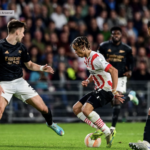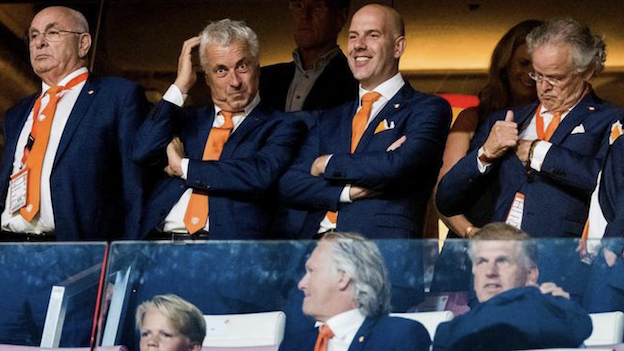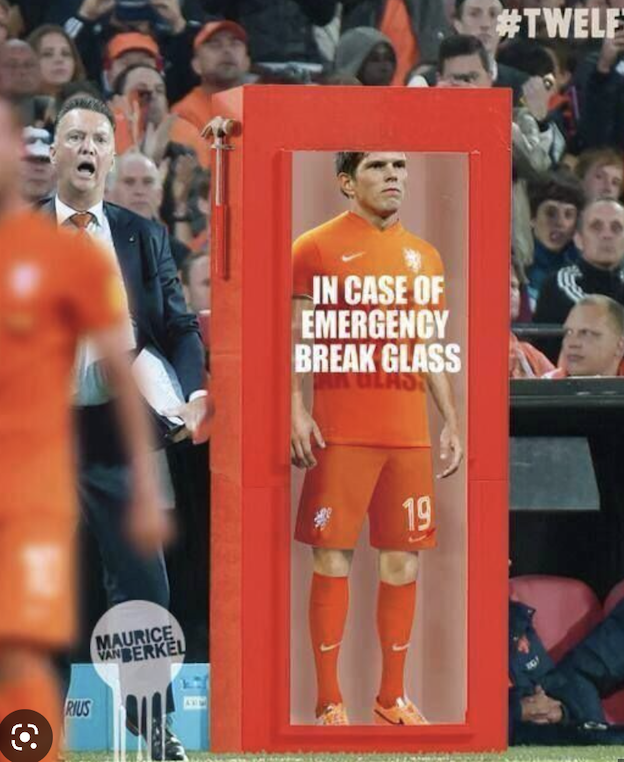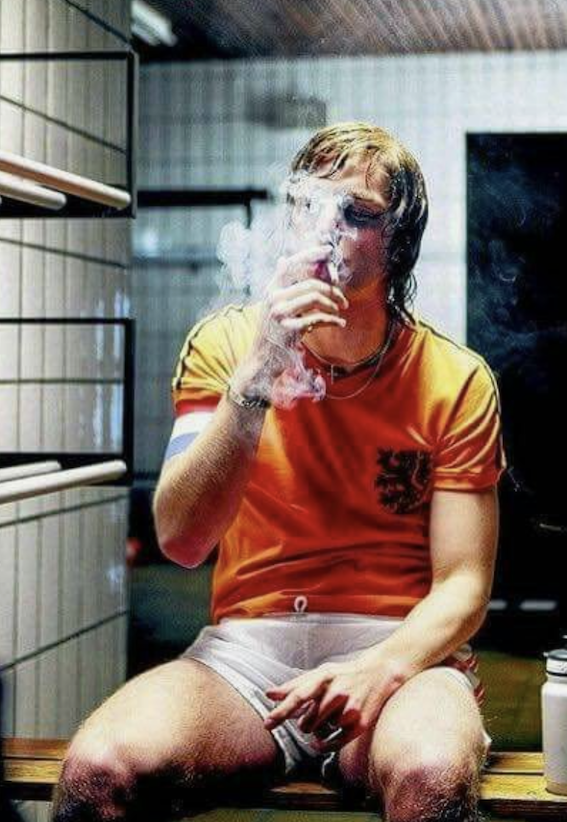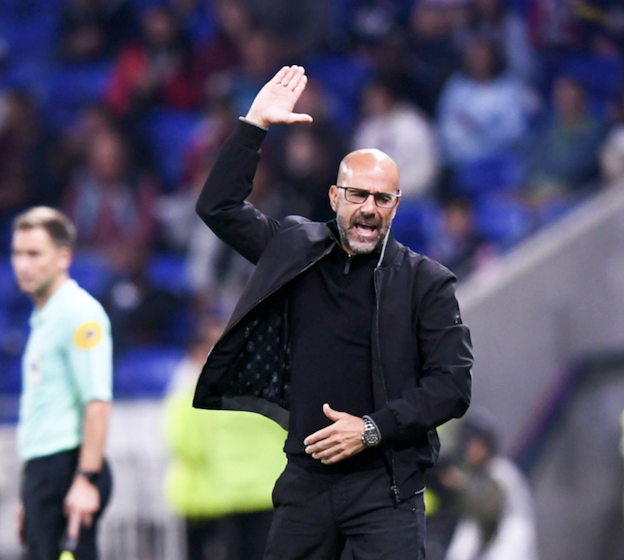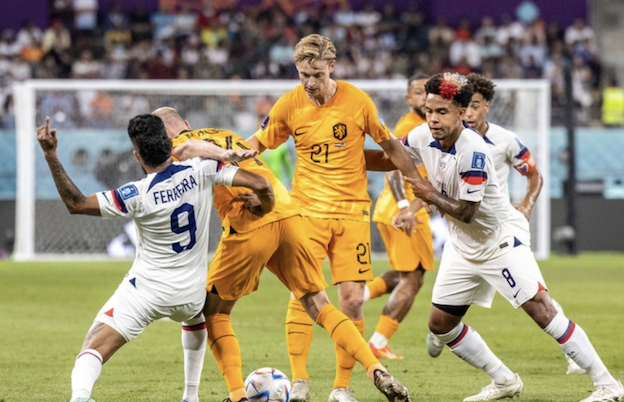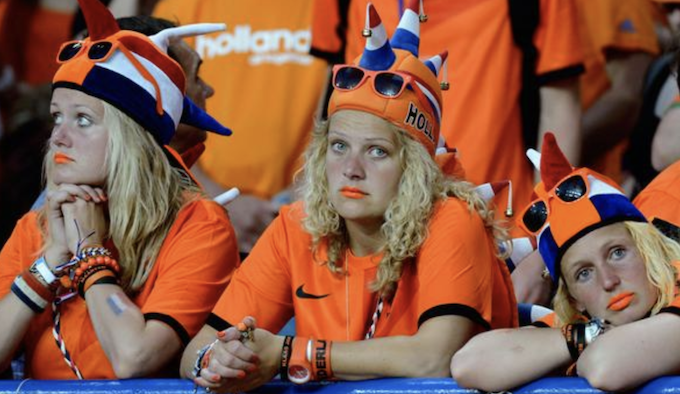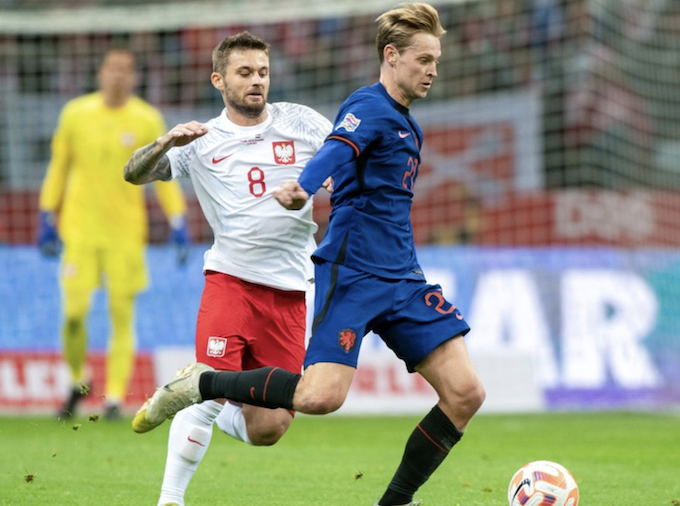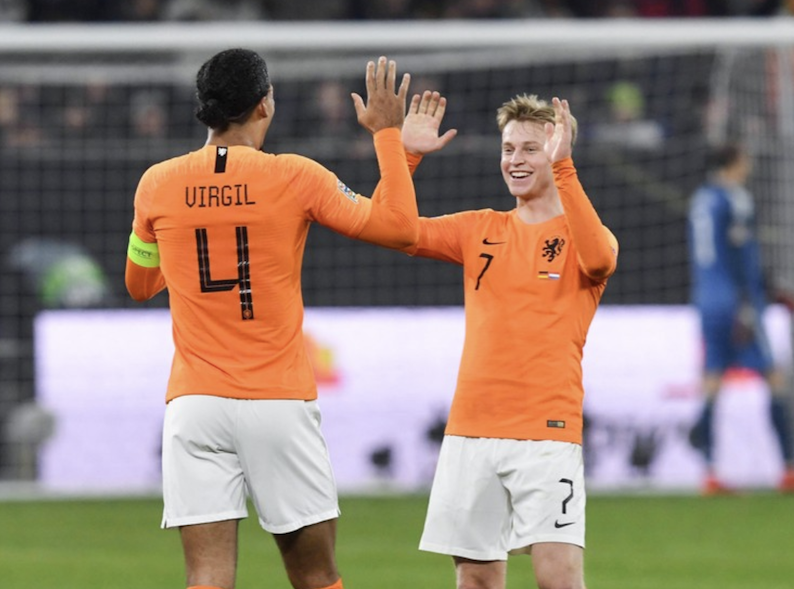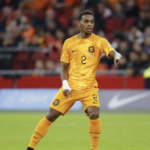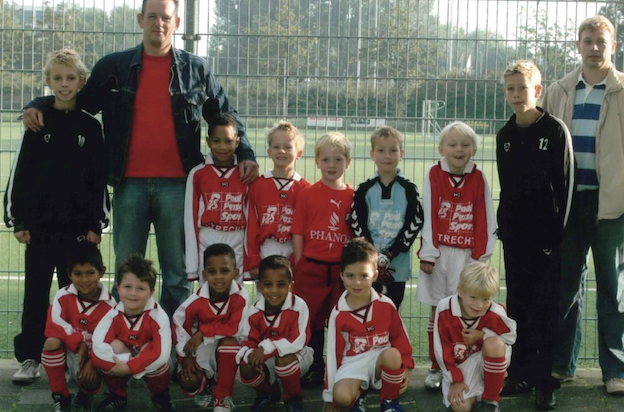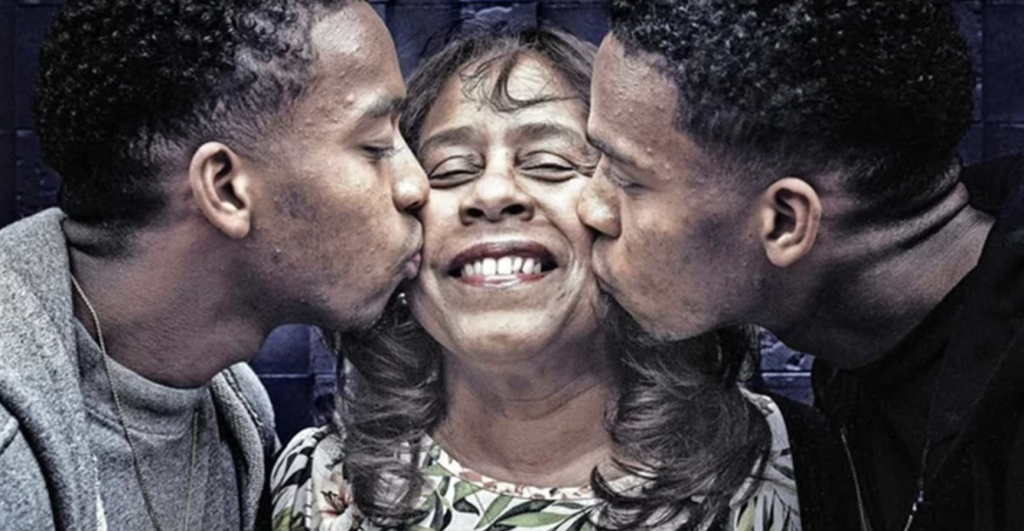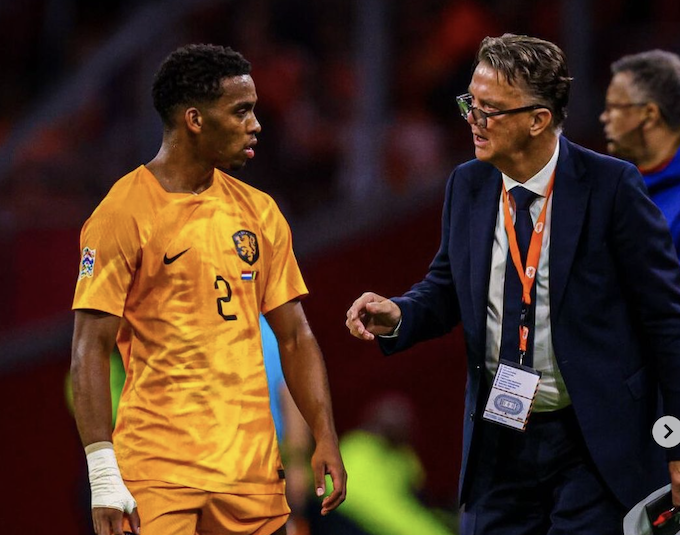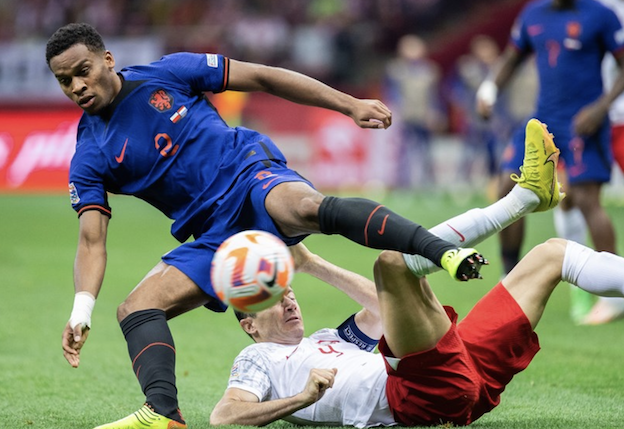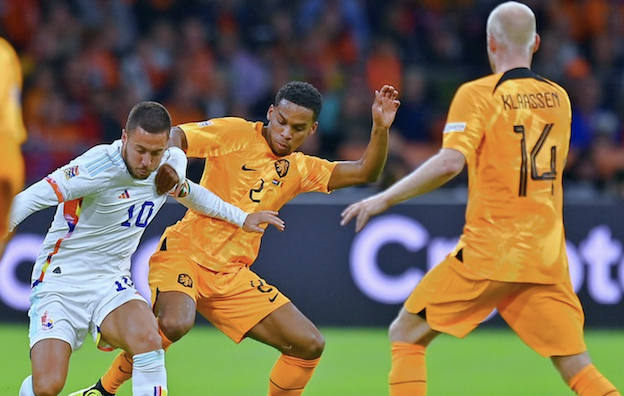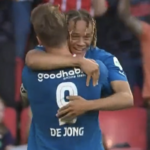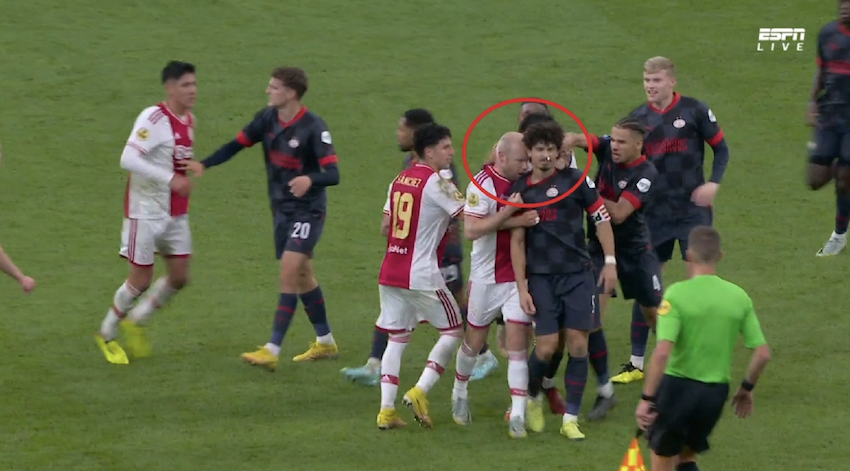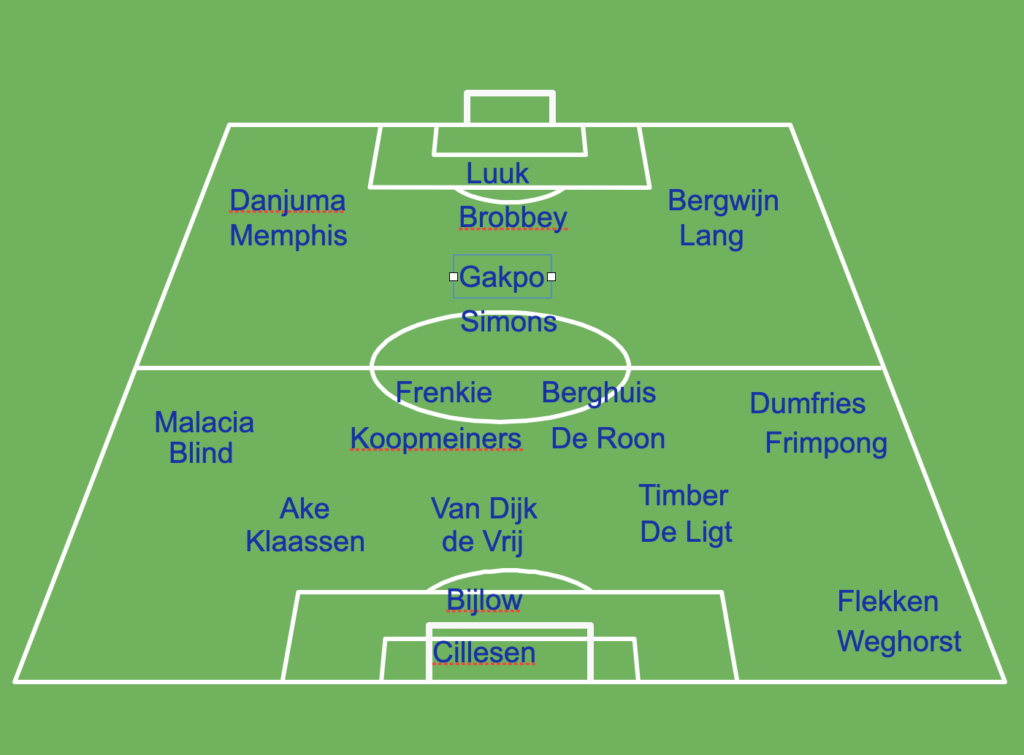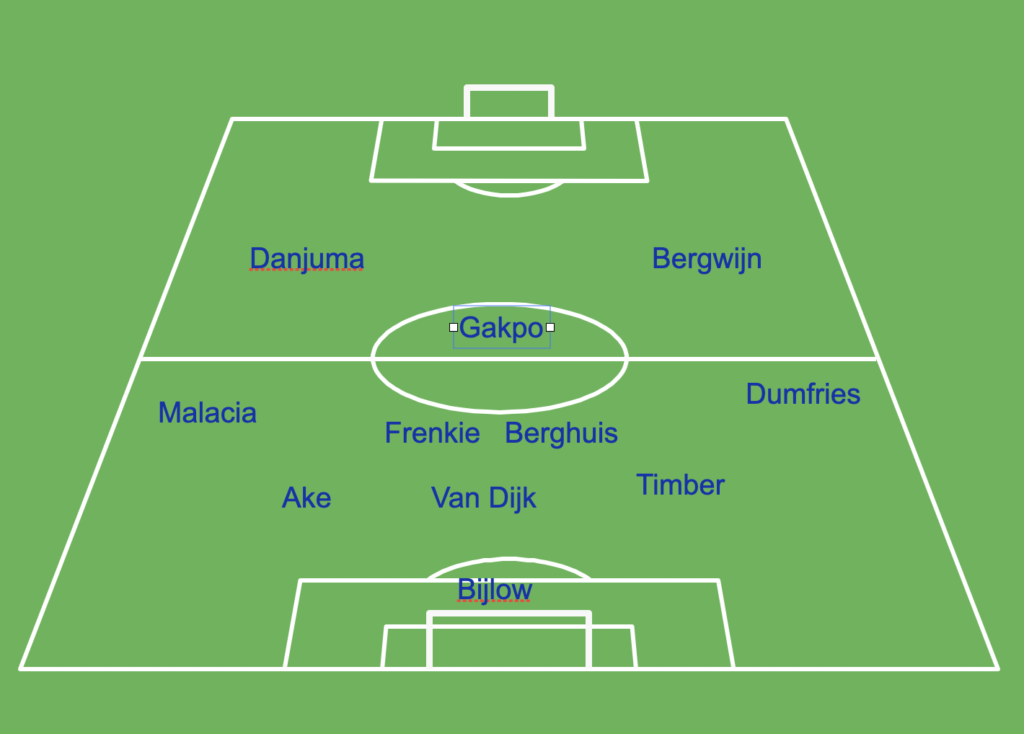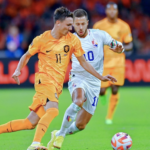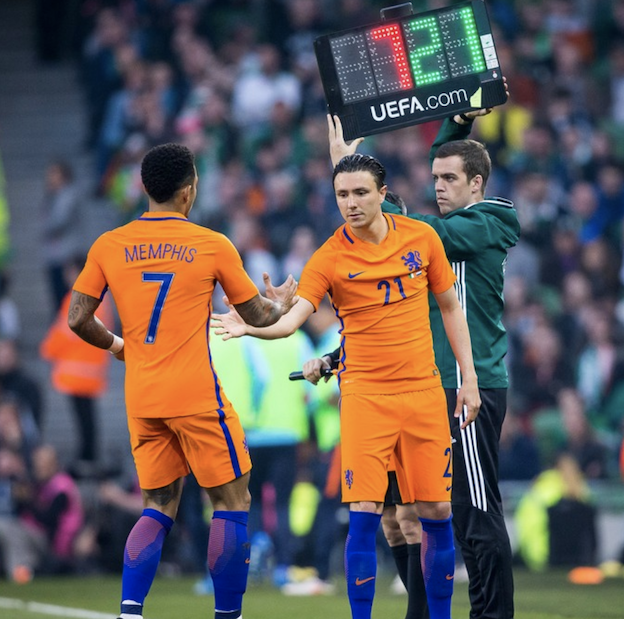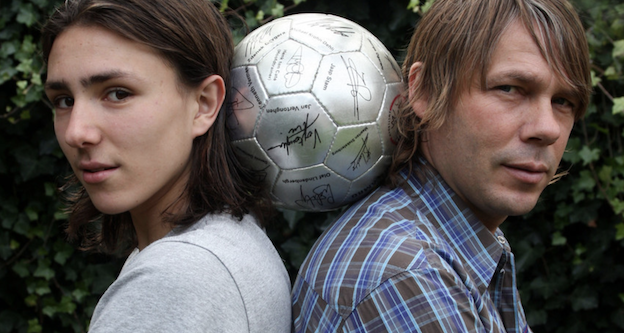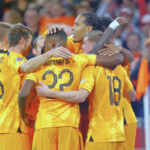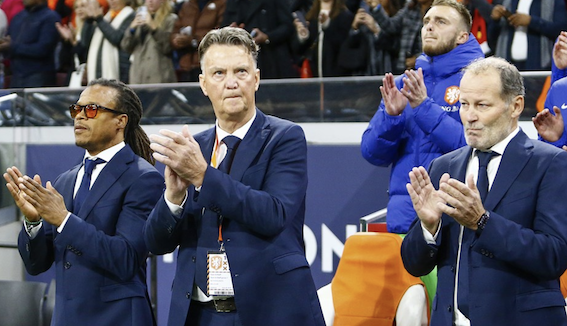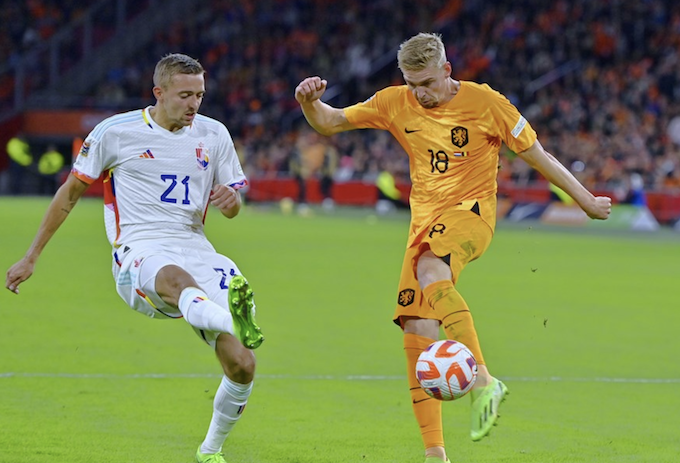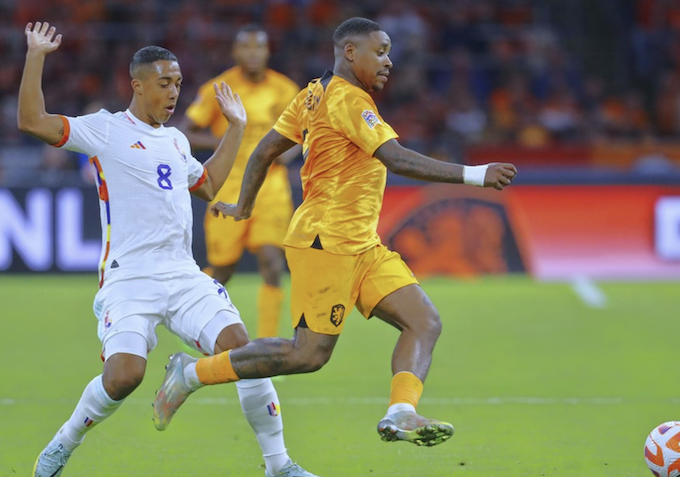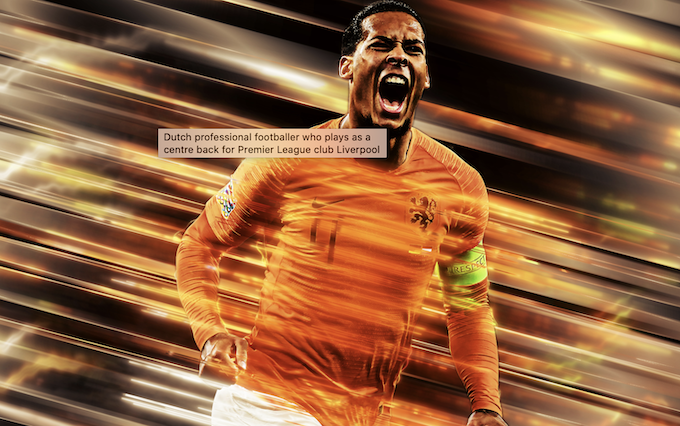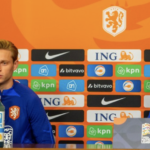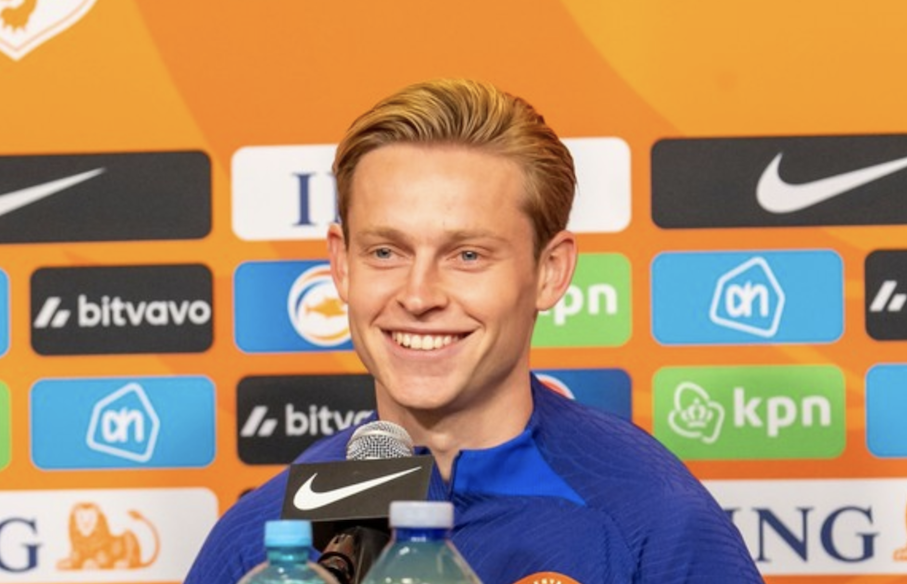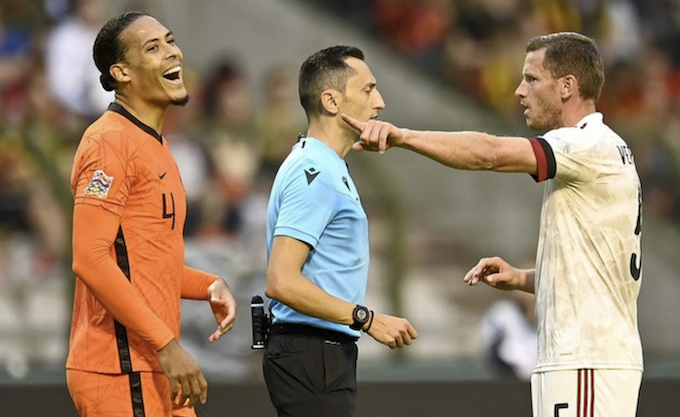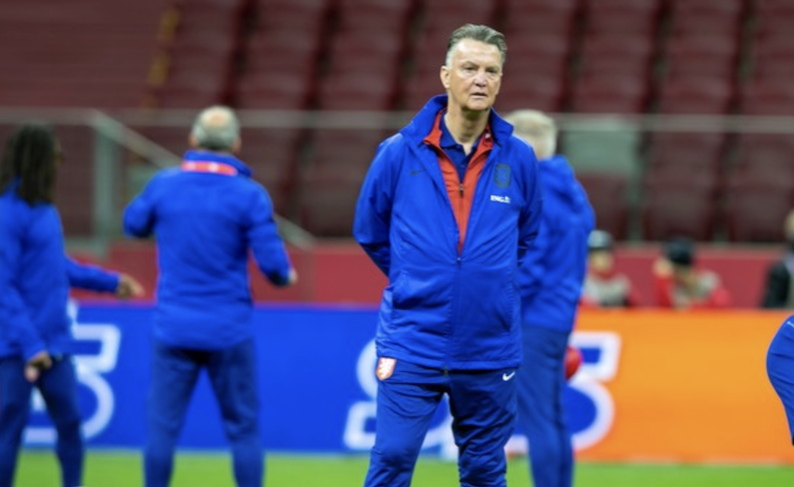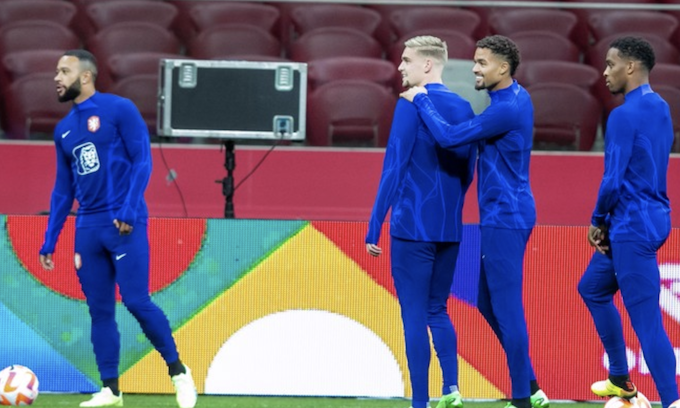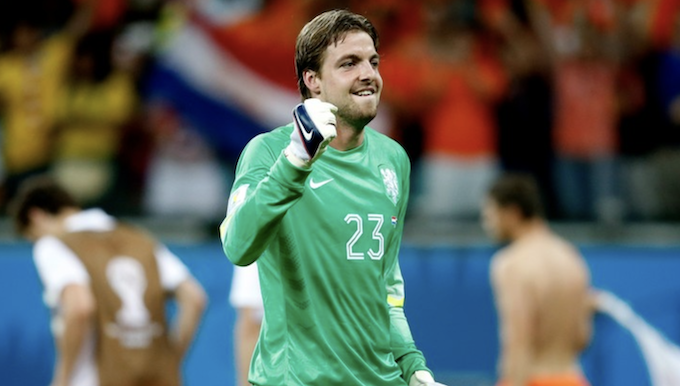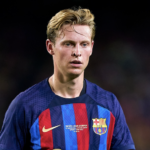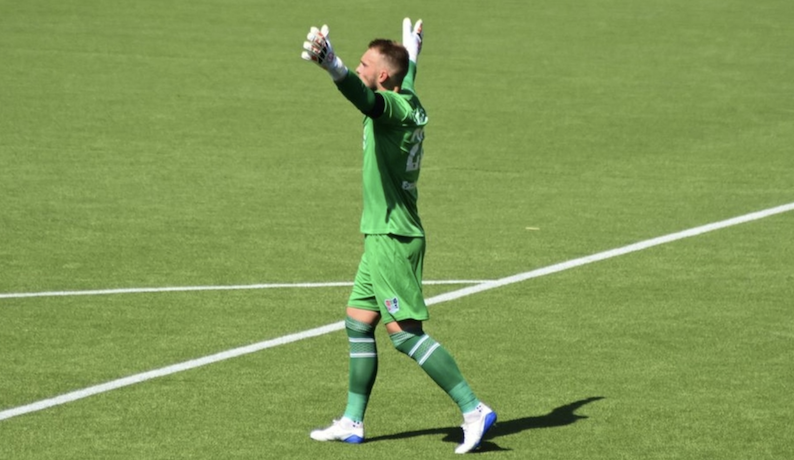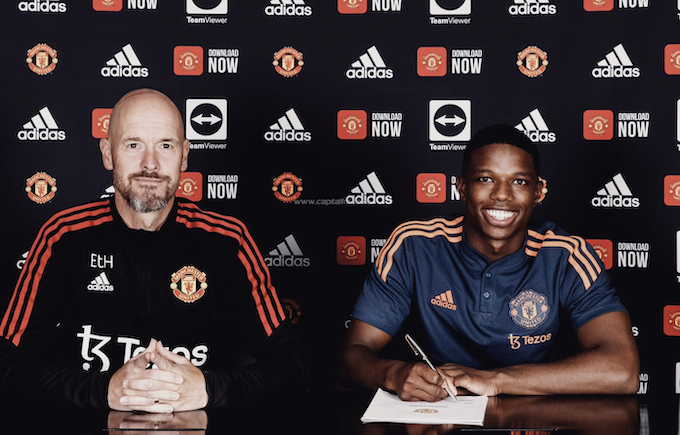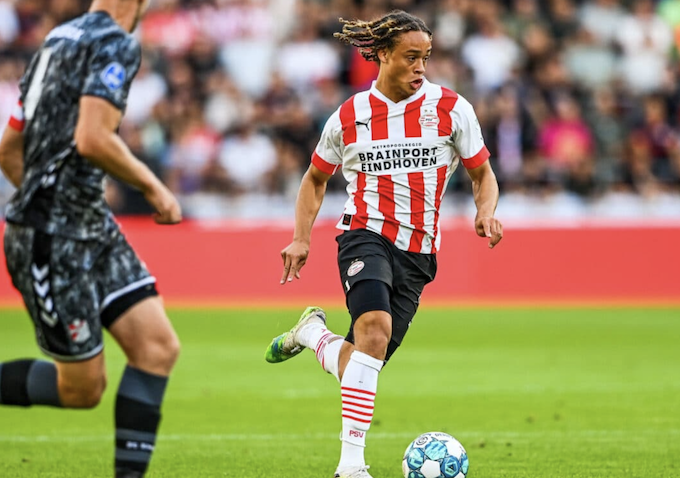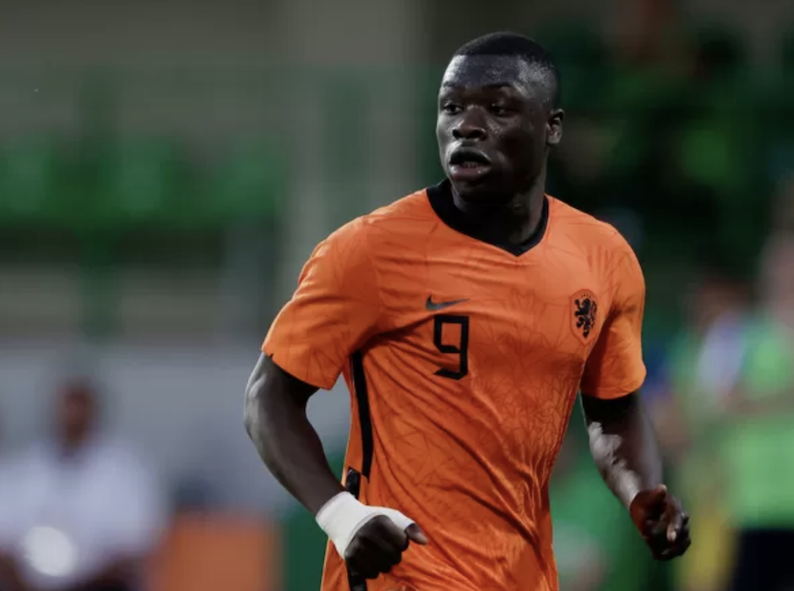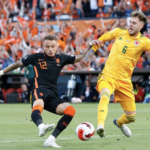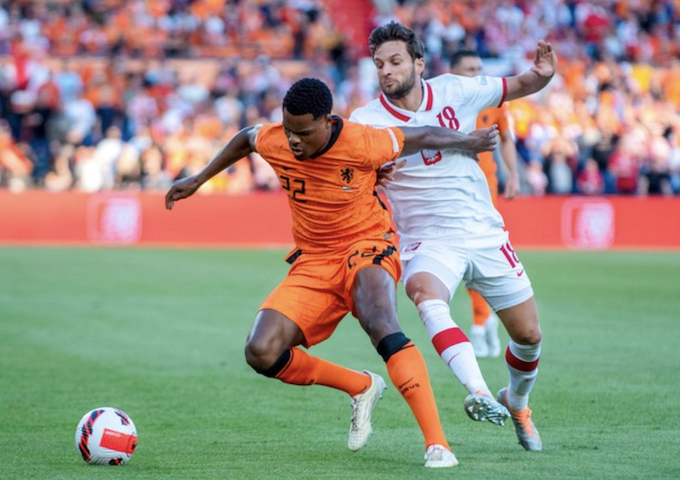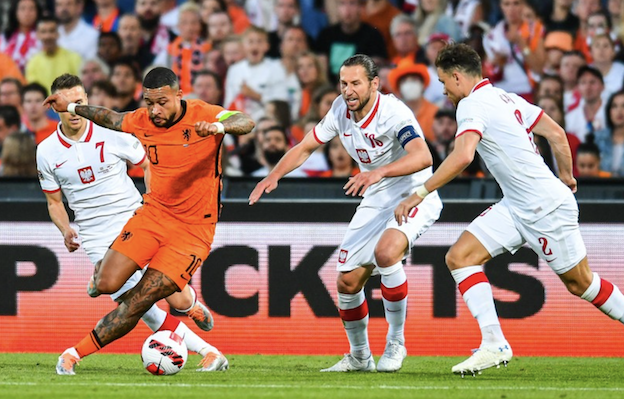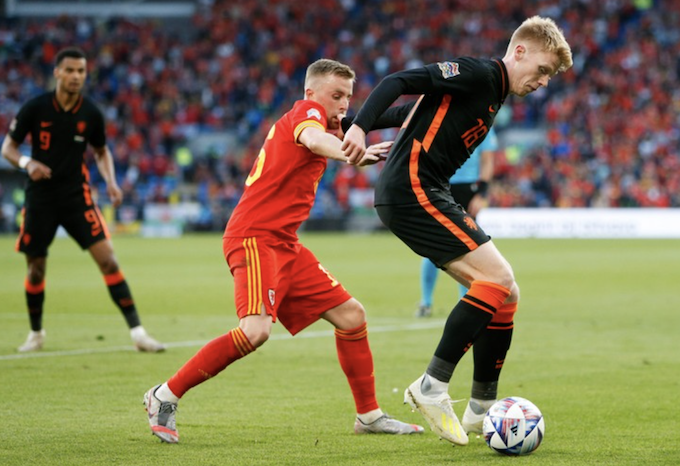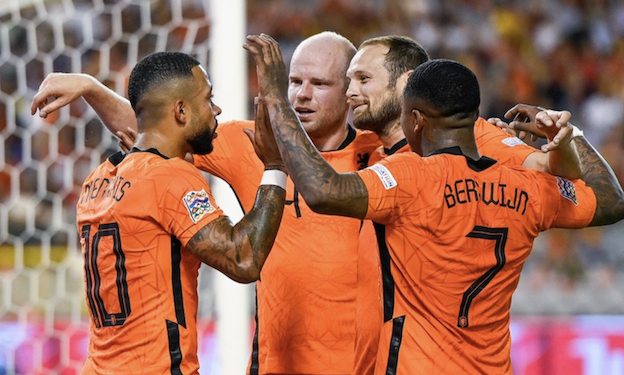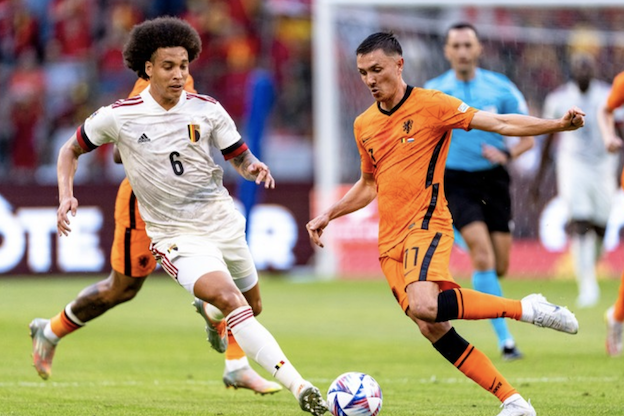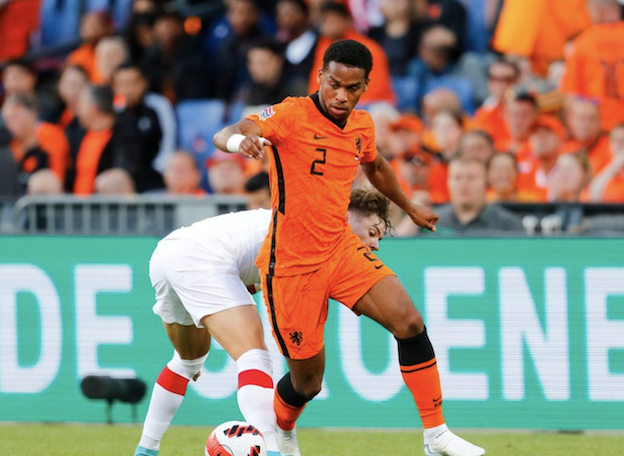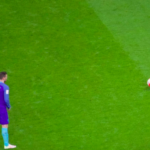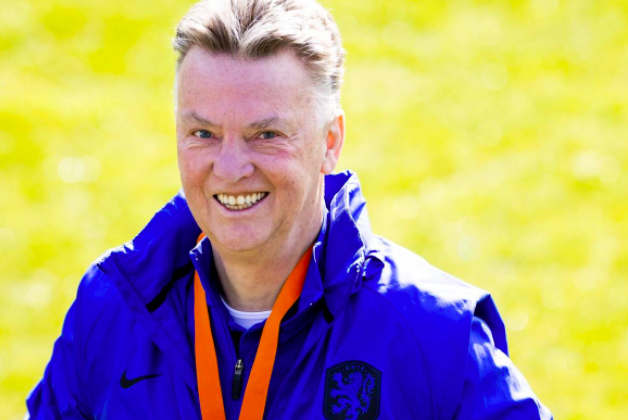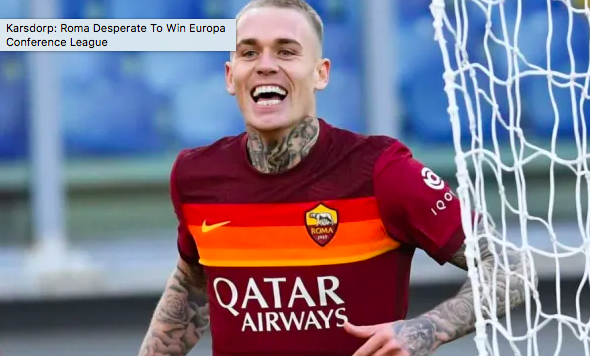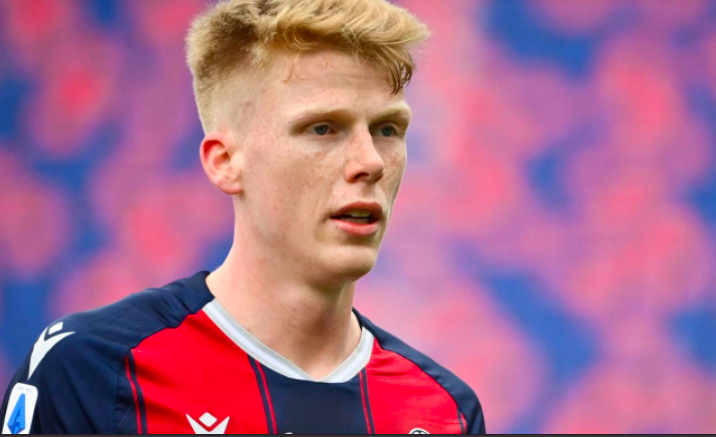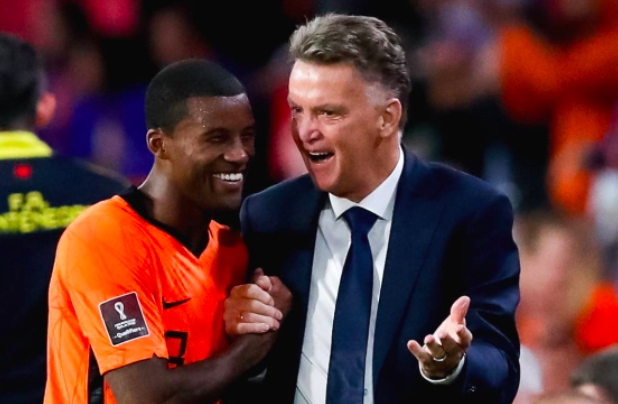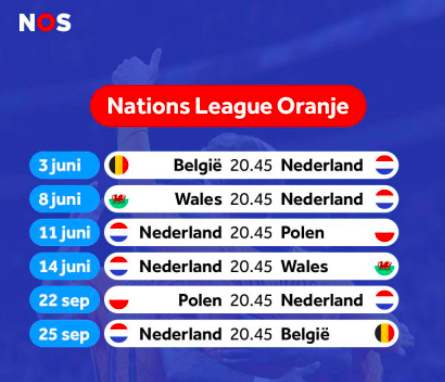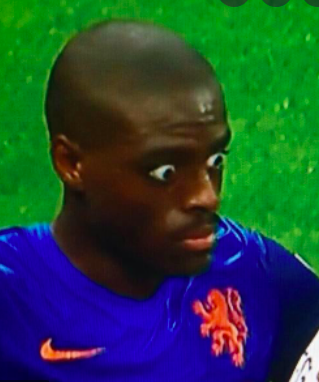The future of Oranje looks bright. How often have I typed these words. Most likely after most tournaments we covered here on the blog. Starting in 2004, in Portugal, with Robben and Advocaat dominating the headlines, via the Battle of Nuremberg to the Russian drama in 2008, the Spanish toe in 2010 and the miracle of 2014…
But, the future of Oranje always looks bright, which is part of the problem actually. We want the present to be bright. But time and time again, we put a lot of weight on the multiple talents we recognise, but which somehow don’t come to fruition.
In 2006, Maduro, Kromkamp, Jaliens, Vennegoor, Hesselink (never know which one), Babel… In 2008, Engelaar, De Zeeuw, Melchiot, Bouma, Afellay. In 2010, Elia, Braafheid. And the list goes on.
We do have the players. We always develop players. From Cruyff, Rep, Rensenbrink and Neeskens, to Bergkamp, Van Basten and Van Tiggelen. Or Van der Vaart, Sneijder, Robben now to Memphis, Gakpo and Frenkie de Jong.
It’s not the players. I said this before: Greece won the Euros in 2004 without any real world class names. We have enough players to fill a national team.
My key issue with Dutch football is the lack of real competence at the Federation level (the KNVB). Somehow, mediocre managers are pulled towards the jobs. It’s a cushion job, nicely paid, making nice trips to FIFA and UEFA events, you get your face on tv and you get to hang with famous people… But the Dutch officials lack the gravitas, experience and commitment of – say – the German or English officials. It’s all a bit cottage-industry in the Netherlands.
I mean, allowing assistant coach Dick Advocaat a contract clause allowing him to leave his job after 2 months, after coach Danny Blind had said no to other candidates. And then to allow Ronald Koeman a clause in his contract, so he could abandon the NT mid campaign (which gave us Frank de Boer and then Louis van Gaal). And then inviting Koeman back in!!!
What messages do you give to the players? How will Koeman get back into the dressing room? Its like leaving your wife for a younger model and then after a year of failed love-making, you return to your ex?
Or calling Peter Bosz to ask him about his contract and then telling the media Bosz turned the gig down?
Or having joke Hans van Breukelen sign both Ten Cate AND Advocaat and then lying to the media, the supporters and the players while Ten Cate had audio recordings unmasking the glib former goalie.
I mean….
Top sport mentality? In the dressing room yes. On the pitch, sometimes. In the board room? No.
The KNVB management seems to be fishing in the same old pond: ex players, older than 50, successful as club coach, popular amongst the people, Dutch, experience within the Federation a preference.
Louis van Gaal had 3 stints. Hiddink had 2 stints. Advocaat at least 2. Now Ronald “this train might not come by again” Koeman twice. People like Grim or Lodeweges or further back Van Lingen, were part of the KNVB coaching staff before, at the youth level. There is no real vision. Coaches seem to be selected along the “IBM” mantra. In the past, corporations went for IBM because “no IT manager gets sacked for chosing IBM as a partner”. In Dutch football, no KNVB official will get sacked for selecting Hiddink/Van Gaal/Advocaat.
We don’t see rebels like Cruyff, Ten Cate or Bosz as team manager. They are too high maintenance. They will say things the KNVB doesn’t want to hear. They will have an opinion about the KNVB staff, protocols or methods. They play risky football.
Back in 1994, Cruyff dropped out of the negotiations to lead Oranje in the USA World Cup because he was forced to use the KNVB coaches as assistants, while JC wanted Tonny Bruins Slot and his own staff. Just like someone in KNVB management blocked the signing of Henk ten Cate.
Next up, our Academy philosophy needs a kick up the behind. Our focus has been very much a cookie cutter “pass and move” format, where players like Danjuma, Frenkie de Jong and potentially even Xavi Simons were told to “stick to the program”, i.e. stop dribbling and pass the ball more.
It’s vital to develop programs for specific roles in the team and it’s vital to organise more resistance for our talents. Every player leaving the Dutch competition to go to Italy (in particular), England or Germany will tell you soon after their move how they now train really hard and how it took them months to get up to par with the other players in terms of fitness.
Our talents, at Ajax, AZ, Feyenoord and PSV, win most of their matches with two hands tied to their backs. Send them out to play more international tournaments. Develop ways to make it hard for them. Let them play 10 v 11 for instance, to build more resilience and grit.
Talents will always come through in Holland but talent alone is not enough.
But enough with the stern criticism. Lets look at the interview with Peter Bosz, the World Cup winning team manager in 2026.
Congrats, Peter. You finally got us a World Cup. When did you start thinking it was all possible?
PB: “I always knew it was possible. We were close so often but we regularly missed a detail. We were able to get all ingredients right, this time. The foundation being the mental and physical levels of the squad. And then it was mainly the typical Dutch football spirit which got us the win.”
Such as?
“It started when Ronald Koeman left after losing the Nations League final versus Spain, 1-8. The new 6 at the back system failed miserably. Koeman wanted to use all good central defenders in his line up and having Daley Blind as a striker was not a good call for some reason. So he left for Dundee United, which was one of his dream clubs apparently. I went back to the usual 4-3-3 and tried to get some clarity in to the squad.”
Was it hard to make the transition?
“The main thing was to get all these petty Van Gaal v Koeman things out of the consciousness of the lads. We just went back to the basis. 4-3-3 is ideal for the triangles and the positioning on the pitch. We were mostly play 3-4-3 whenever we had control which was often as we do have great ball players.”
How did you approach this World Cup?
“We decided to use the principles engrained in us by the glorious 1970s generation of players and we modernised it. We didn’t even do this to be honest, others have done it before us. I mean, Van Gaal in the 90s, Sacchi at Milan, Guardiola and of course the input from Wilson and Emanuel on the Dutch Soccer Blog was priceless.”
You decided to use a lot of playful, creative, adventurous players.
“Well yes, football is about scoring goals. You cannot score if you don’t have the ball. So players who have full control over the ball have more chance of keeping possession and finding solutions. All the rest, we can teach players. The massive overhaul we have seen in our academy has pushed the overall quality up. We’re just delighted with how it went.”
How did the selection process go?
“Simple. Which players are vital to have in the team, based on control, mentality, fitness and pure quality? Frenkie, Nathan, Tyrell, Cody, Xavi and Ryan. Right? So we built a team around them. Nathan Ake our captain, and leader and most experienced player. With Sven Botman regularly standing in for Nathan. Frimpong and Malacia are no-brainers of course and with De Ligt we have a true tank next to Nathan. A midfield of Frenkie, Gravenberch and Xavi Simons can play any opponent to smithereens and with Gakpo, Danjuma and Lang we have smashing forward line. I’m also happy Memphis as a supersub still works. It almost doesn’t matter who I put in goal, but Bijlow did really well doing nothing.”
Seven matches, no goals conceded, and scored an average of 5 goals per match. Wow.
“Yes, we could have done better I suppose. Your criticism is understandable. It usually takes about 20 seconds from start to the move, to the end: the ball in the net. We could and should have score more.”
Eh….
“Overall, my assistants Daley Blind and Dirk Kuyt have been instrumental in this and I hope we can now win a couple more tournaments. Football is coming home!!!”
Eh no Peter, that slogan has nothing to do with….
“Am I so smart, or are you so stupid??”

